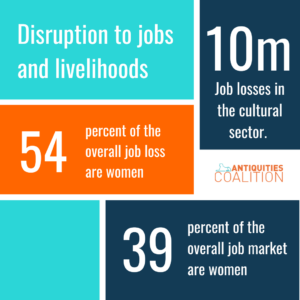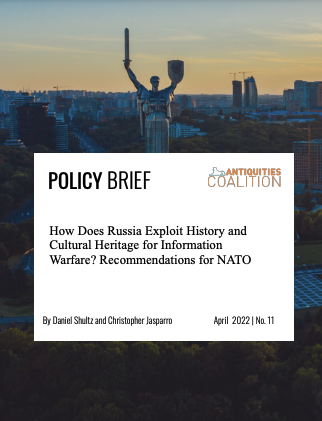Join us August 15 at 10:00 AM New York / 3:00 PM London / 7:30 PM Chennai for this Free Webinar
As the Russia-Ukraine War rages on, culture in Ukraine remains under attack.
From recent conflicts in Iraq, Syria, Yemen, Afghanistan, and now, Ukraine, the international community has seen the catastrophic impact of war on cultural heritage. But conflict is not the only threat. Looting and illicit trade feed upon any weakening of civil society caused by globalization, natural disasters, climate change, and pandemics. In such situations, the international community scrambles to implement protective emergency actions – usually too late. What is worse, resources deployed in one emergency rarely prevent theft and illicit trade in future emergencies elsewhere, whatever and wherever they might be.
On August 15, the Antiquities Coalition will convene top experts from academia, civil society, and the law to make recommendations for how international public and legal policy should take a proactive stance aimed at eradicating threats to cultural heritage globally. The discussion will feature takeaways from the Antiquities Coalition’s roadmap for the G20, Safeguarding Cultural Heritage in Conflict Zones, as an example of how leaders can strengthen global efforts against the looting and trafficking of cultural objects.
As evidenced by the situation in Ukraine, our current policy framework is failing—failing our cultural heritage, failing the communities and countries with the closest ties, failing their governments, failing law enforcement, and failing the legitimate art market. Such a stark assessment is daunting, and demands rigorous investigation and discussion. The Antiquities Coalition looks forward to your participation in this important conversation.
Moderated by Dr. James K. Reap.








 Warfare? Recommendations for NATO
Warfare? Recommendations for NATO